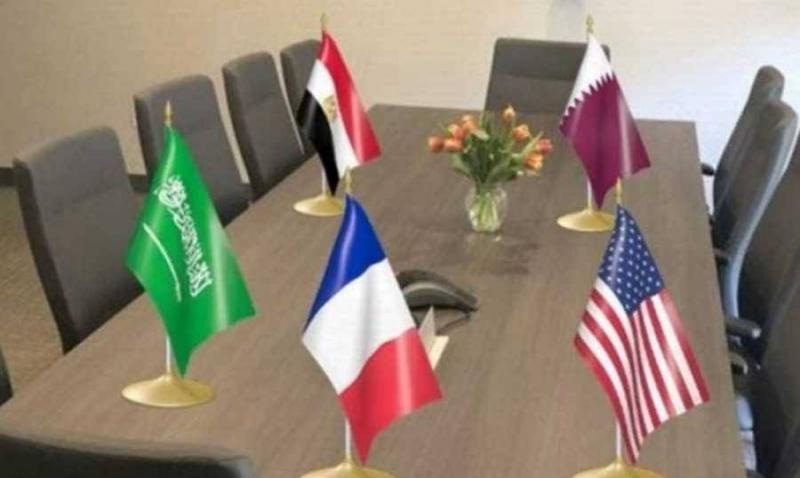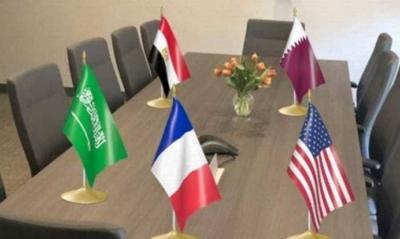This is not the first time the Egyptian ambassador speaks of the Quintet's efforts to create a roadmap for the future. He has repeated the same phrase about a month ago. After every meeting or visit by a political official, he emerges heralding positive results, eager to spread a surplus of optimism that distinguishes him from other ambassadors representing the Quintet.
The Quintet holds meetings periodically at one of its members' residences, aiming to discuss the progress made and prepare for upcoming visits. It's assumed that discussions would move beyond the ambassadors to foreign ministers, but what new discussions can the foreign ministers have when the Quintet has been unable to make any breakthrough in the presidential issue? This inability is further complicated as long as the war in Gaza continues.
Hezbollah refuses to separate the southern front from Gaza. The statement by its Secretary-General, Sayyed Hassan Nasrallah, was clear that there would be no separation whatsoever. This stance is within the reach of the Americans and the French, so what breakthrough can be achieved when the ceasefire has not yet materialized? This means there is no president and no elections, according to "Nidaa al-Watan."
Relevant parties expect that presidential discussions will gain momentum following the successful discussions regarding the ceasefire. Any exploration of names or the possibility of calling for an election session is off the table as long as the situation remains unchanged. Behind the scenes, significant competition is noted between two undeclared candidates: Acting Director General Major General Elias Bechara and Army Commander General Joseph Aoun. The Americans have a veto against the former, while Hezbollah has a covert objection to the Army Commander that it avoids expressing openly. Currently, Hezbollah dismisses any discussions regarding the presidential matter, similarly believing there will be no soon maturity or conditions aiding an agreement on a president. They deny rumors of a potential election within a few months, attributing this to what the United States is aspiring to, expressed through mediators, indicating a desire to wrap up the presidential election process in Lebanon during the period between the cessation of the war in Gaza and the U.S. presidential elections.
Previously, their presidential envoy Amos Hochstein indicated that the end of the Gaza war could be an opportune moment for this, mentioning a comprehensive basket at the borders inclusive of the presidency. This is what the ambassadors of the five countries concerned with the presidential file have alluded to, which is why candidate Sleiman Frangieh continues to assert his commitment to his candidacy, believing that an agreement on a deal will grant the presidency to Hezbollah, which would emerge victorious from the battle. However, it is too early to resume discussions before a ceasefire.
Hezbollah, which previously stated there would be no presidency before Gaza, does not think that the time will be suitable for electing a president in the timeframe preferred by France, specifically between July 15 and September 15, as conditions will not be ripe as required, especially considering that a comprehensive agreement is sought.
Today, the ambassadors of the Quintet meet to assess the situation and review the post-ceasefire phase and the potential transition of serious discussions to the foreign ministers. This necessitates the achievement of an agreement or settlement, which is within Hochstein's reach as he seeks to formulate an agreement on the implementation of Resolution 1701 and secure Israeli approval to cease aerial sorties in Lebanese airspace while affirming the 13 points along the land borders, concurrently with this phase seeking to agree on electing a president as a basic condition for stability. The outcomes of all this remain uncertain.
Only the activities of the Quintet bring the presidential file back to mind, amidst everyone's engagement in discussions surrounding the displaced persons issue, the one billion euro donation, and the parliamentary session today, for which the final statement or recommendation is being drafted. It is expected that there will be high-toned positions condemning and denouncing, with the speakers competing in narrating the reality and its dangers, after which it concludes, allowing tomorrow to be another day, according to "Nidaa al-Watan."




